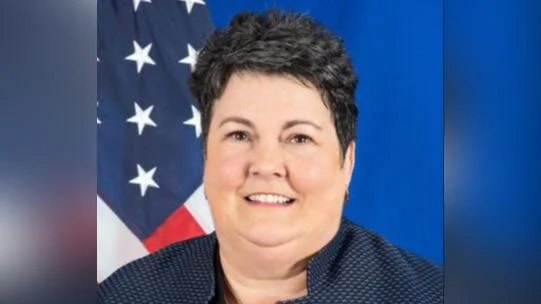Accra, Ghana – On July 7, U.S. Charge d’Affaires, a.i. Rolf Olson met with senior officials at Ghana’s Nuclear Regulatory Authority (NRA) to provide radiation detection equipment in support of Ghana’s nuclear safeguards program. Ghana’s NRA regulates and controls the peaceful applications of nuclear energy to align with international standards and obligations set forth by the International Atomic Energy Agency (IAEA).
The detection equipment, the HM-5 identiFINDER, valued at 270,000 Ghanaian cedis ($26,000 USD), will reinforce and strengthen detection of nuclear material to support Ghana’s IAEA reporting requirements and its capacity to detect, quickly locate, measure, and identify the source of radioactive and nuclear material.
This donation is the latest support by the United States for Ghana’s civilian nuclear energy program. In January, the United States through the Foundational Infrastructure for Responsible Use of Small Modular Reactor Technology (FIRST) Program donated the E2 Center at the School of Nuclear and Allied Sciences, featuring a NuScale Power small modular reactor (SMR) digital control room simulator. Previously, the program co-sponsored study tours to the United States and Japan for Ghanaian nuclear engineers and facilitated university partnerships with the top-tier nuclear engineering department at Texas A&M University for developing SMR-related curricula at Ghanaian institutions.
The U.S. Department of Energy’s National Nuclear Security Administration (DOE/NNSA) has worked in partnership with NRA for over a decade to strengthen Ghana’s implementation of IAEA nuclear safeguards obligations. The International Nuclear Safeguards Engagement Program (INSEP) under DOE/NNSA supports states in implementing the highest standards of nuclear safeguards by building capacity to strengthen the Treaty on the Non-Proliferation of Nuclear Weapons.
INSEP’s cooperation with NRA has included consultations on strengthening Ghana’s nuclear law and drafting nuclear safeguards regulations, conducting technical trainings on non-destructive assay measurements of nuclear material, and supporting the establishment of sustainable national safeguards infrastructure in Ghana to meet IAEA obligations.

